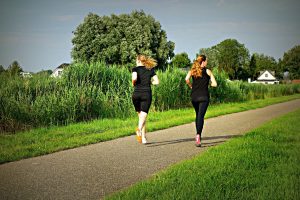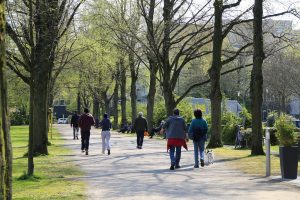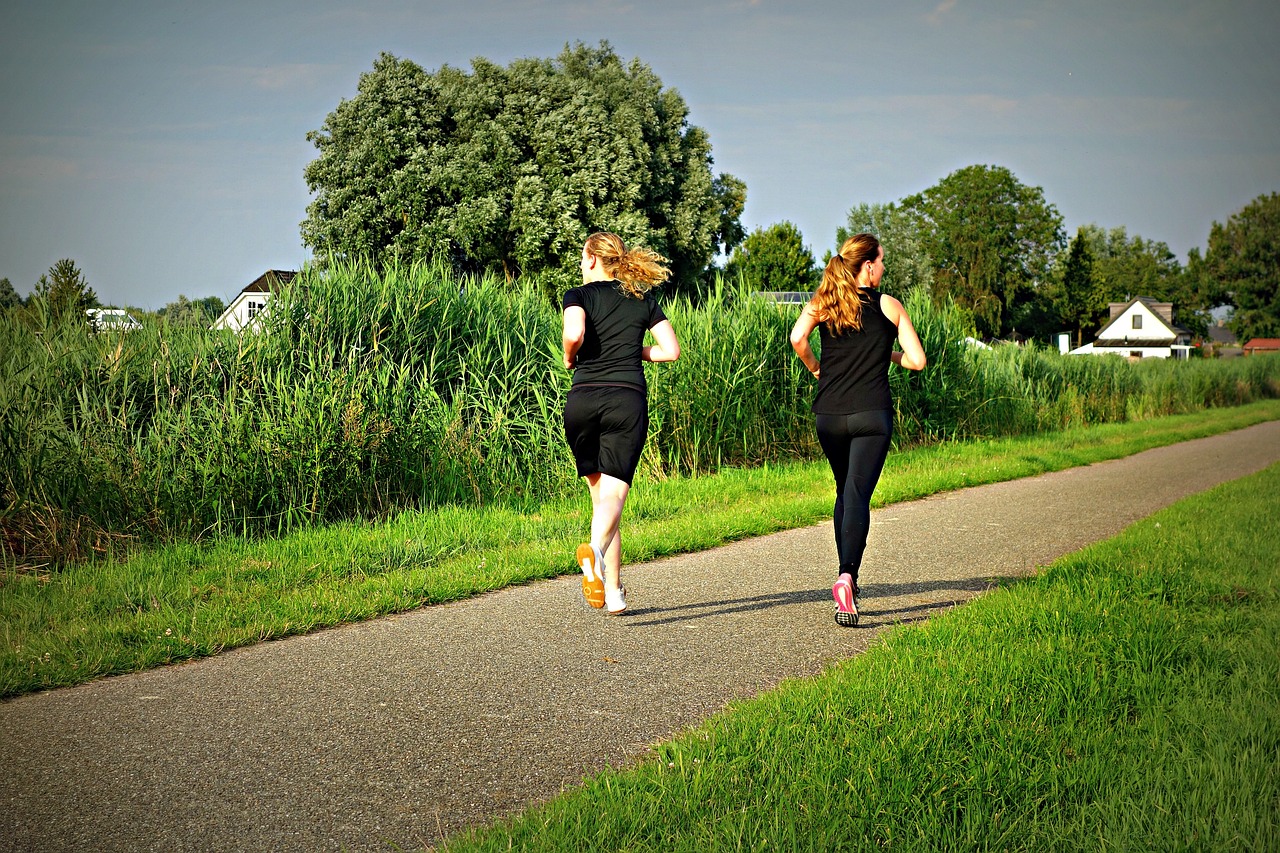So far in this series, we have looked at how green and blue spaces can have positive educational and inclusive effects, showing how a new urban park in Edinburgh’s west could be beneficial for all. There is however, another area which these spaces have been shown to greatly benefit – health and wellbeing. Today’s blog will look into how access to green areas can help both physical and mental health and wellbeing.
Physical Health
It may seem obvious how having easy access to good quality outdoor spaces could benefit your health. Nature may be a more powerful tool than we have ever believed, with some research showing that something as simple as patients who have a view of trees from their hospital window improve more quickly and have less reliance on pain medication than those without that view. The outdoors is the main setting for lots of different exercise activities, and studies have shown that if you have easier access to green spaces, you’re more likely to exercise. This can be beneficial no matter the activity, whether you take up a field sport, start running or go for a simple 10 minute walk. In fact the NHS advises that a daily 10 minute walk is one of the easiest ways to improve your heart health, by increasing stamina and burning calories. Creating a habit, like the daily walk, is not always easy, as many people don’t have somewhere local to them with safe or interesting routes. Improving access to pathways surrounded by nature, like the West Edinburgh Park, could encourage more people to make this daily commitment to their health.

Mental Health
What may seem less obvious, is how access to the outdoors can actually improve one’s mental health. With the onset of the Covid-19 pandemic in 2020, there were many policies implemented with the hope of reducing transmission of the virus. This included majorly limiting the amount of time people spent outdoors, unless they had access to a private garden. Research conducted by NatureScot, has found that 73% of people said that spending time outdoors helped them to destress and relax, and additionaly 63% of people believed that time outdoors contributed to the improvement of their physical health. According to a 2021 report by the Mental Health Foundation Scotland 45% of people said that visiting nature helped them to cope during the pandemic. This report also highlighted the importance of feeling connected to nature, and how a strong sense of connectedness can help us to unwind. It is thought that the more time you spend outdoors, the more connected you feel with nature, and a higher connectedness helps boost relaxation when you spend time outdoors. However, it has also been shown that if you have a high level of connectedness with nature, you don’t even have to be surrounded by it to experience these benefits, you can feel more relaxed by just reflecting on previous times spent there. Those with this important connection with nature are shown to have lower overall levels of depression and anxiety.

I had the opportunity to speak to Professor Catharine Ward Thompson from the University of Edinburgh. Her research focuses on the links between inclusive access to outdoor environments and quality of life, including health and wellbeing. When speaking to her I asked her why she believed good quality green spaces were so essential for all people to access, specifically when regarding our health and wellbeing.
“These areas help us to cope – if there’s a place to escape and chill out, it allows people to manage their stress and anxieties.”
She talked to me a bit about her previous research on this link, and explained that sometimes urban environments can be particularly stressful places for people. She used the example of how loud and busy roads could be extremely stressful for elderly people. As senses like hearing, concentration, and reaction time usually decline with age, something like crossing the street may be a much more daunting task for an older person, meaning by just carrying out their regular daily tasks, they are experiencing more stress than they would have previously. She stated this is why green space can be such an important tool for stress reduction, especially parks in urban areas, this green infrastructure allows for people to escape from the stresses of everyday life.
While discussing some of the theory behind the link between nature and wellbeing, Catharine discussed how nature has always been vital for the reduction of stress.
“Humans seek a non-threatening environment after being exposed to a stressful one in order to recover and restore.”
She discussed how throughout history humans have always made use of the natural environment, and have an affinity to seek connection with nature. She suggested that perhaps now, due to the technological age people don’t seek nature out as much as previously, and therefore don’t reap the benefits.
I also asked Catharine how she felt a new urban park, like the West Edinburgh park, would benefit the citizens of Edinburgh. She explained how a project like this, with inclusivity at its heart would help the wellbeing of all:
“Potentially anyone can benefit from a public park, it is not like the gym, you don’t have to pay for a membership, it is free for all to use.”
After discussing the importance of how the West Edinburgh Park would be freely available at the point of delivery for all, Catharine mentioned the benefits of a park that stretches through so many neighbourhoods and homes. She told me that research shows that people want to commit to exercising or being in nature, but struggle to be motivated to do it if they don’t have instant access. In fact, if they have to travel more than 5 or 10 minutes to reach the greenspace, the likelihood is they won’t bother. This highlights how the West Edinburgh Park, that would be placed throughout and connect numerous neighbourhoods, whilst also being excellent connected by public transport would encourage people to visit, and therefore help their health and wellbeing.
Blog by Catriona Taylor, Saltire Scholar research intern at Crosswind Developments



